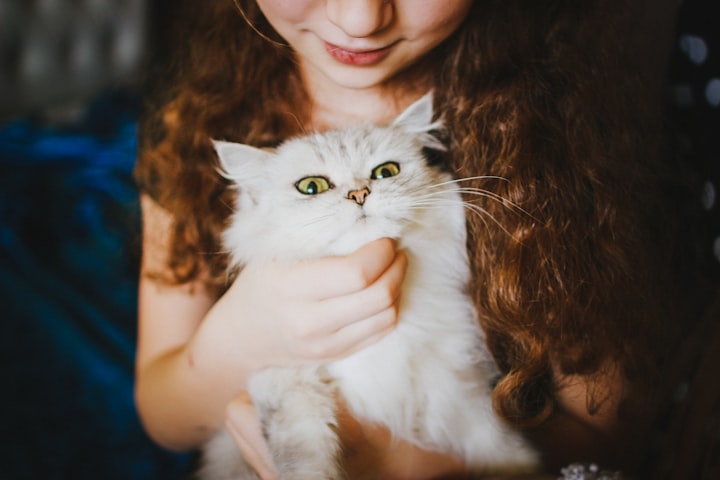Benefits of having pets for children
Increased companionship and responsibility

Introduction: The Power of Pet Companionship
Pets play an important role in providing companionship and comfort to children, especially when parents have jobs and daily responsibilities. Whether it's a loyal dog or a playful cat, these furry friends have a remarkable ability to ease feelings of loneliness and become invaluable companions in a child's life. This article explores the benefits of owning pets for children and how they positively affect their emotional development and responsibility.
1. Unconditional partnership
A welcome presence
When a child returns home from school, the warm welcome of their pet creates an atmosphere of joy and camaraderie. Above all, dogs are known for their enthusiastic greetings, constantly turning to their owners and expressing their happiness. This unconditional companionship helps relieve feelings of sadness and isolation and provides comfort during difficult times.
Empathy and relationship
Pets have an amazing ability to understand the emotions of their owners, and they probably have their best friend inside. These precious companions can sense when their owners are feeling lonely or down and will faithfully stay by their side. The interaction and liveliness they provide creates a unique bond and provides children with comfort and understanding.
2. Guardians of children
Defense and instincts
Pets are not just companions; they are also natural protectors. Their keen instincts allow them to spot dangers that their owners don't notice. Countless stories highlight how pets have become heroes, saving their owners from potential harm. Their ability to protect their loved ones, especially when a child is in a vulnerable situation, brings immense help to parents. Vigilance and safety
In today's busy world, parents can inadvertently forget about their children's safety. It's common for parents to be preoccupied with their devices, unaware that their child is lost or headed for potential dangers. Fortunately, pets are often vigilant protectors and ensure the safety of the child. Cases like these remind us of the indispensable role pets play in keeping children safe.
3. Promoting care and responsibility
Cultivate a sense of responsibility
Pets, be they dogs, cats, rabbits or even fish, instill a sense of care and responsibility in children. Parents can use this opportunity to teach their children the importance of caring for another living being and taking care of their needs. Through childhood tasks such as feeding, bathing and cleaning up after pets, children gradually understand responsibility and its long-term effects.
Lifelong lessons
If children are taught early on to care for their pets, these values often carry over into adulthood. Taking care of pets becomes a routine that is ingrained in their daily life. As a former pet owner, I remember the responsibility I felt when I was tasked with feeding the pets after school. This sense of ownership and responsibility leaves a lasting impression and makes children responsible individuals.
A good example
A relative of mine once drove out of town, leaving her pet in the care of her parents. Despite their absence, they regularly contacted their parents to inquire about the well-being of the pets, whether they had been fed and to check on their activities. This anecdote is an example of the deep care and affection children have for their pets. 4. Cultivate empathy
Developing compassion
Children who befriend pets or consider them family members often show a deep love for animals. When pets get sick or disappear, children feel real sadness. This emotional connection fosters compassion for all creatures and instills in children a deep sense of empathy for their fellow human beings.
Empathy extends beyond pets
The empathy fostered by pet ownership often extends beyond animals. When children see animal cruelty or abuse, they may feel upset, emotionally distressed, or angry at the injustice done to innocent creatures. This increased empathy means greater efforts to avoid harming other people and sentient beings.
Heartfelt sacrifice
I remember an incident with a young boy and his beloved goat. When the goat grew old, the parents decided to sacrifice it on Eid al-Adha, which is a traditional practice. The child's reaction was deep anguish, burst into tears at the thought that his beloved goat had been sacrificed. While this reaction may be funny to some, I saw it as a sign of a child's deep love for their pet.
Conclusion: Considering the benefits of a pet companion
There are many benefits for children to form close bonds with pets. Pets provide firm companionship and comfort and support in lonely moments. They also act as guardians and use their instincts to protect their owners from potential harm. In addition, owning pets instills in children a sense of responsibility, fosters caring and empathy that extends beyond the boundaries of their furry friends. Parents can use the power of pet companionship to enrich their children's lives, making sure they never feel alone, and teaching valuable lessons along the way.
About the Creator
Muhammad Wildan Habibie
write as my hobby






Comments
There are no comments for this story
Be the first to respond and start the conversation.